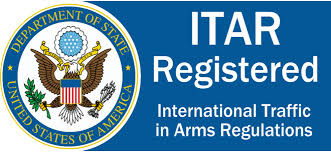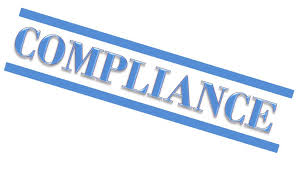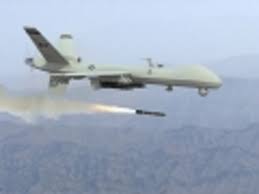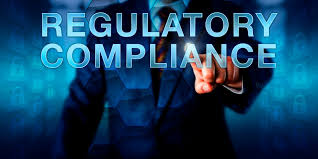Airbus ITAR Settlement: Review of Airbus ITAR Violations (Part III of IV)

The Justice Department has brought only a few enforcement actions that focus on FCPA and export control violations. Last year, Quad Graphics earned a declination for FCPA and OFAC violations. In 2013, Weatherford settled FCPA and export control violations for $252.6 million. In a major case in 2011, BAE Systems paid $400 million for making a false statement arising for underlying conduct of bribery and ITAR violations.
Now, we have Airbus, which engaged in global bribery and substantial ITAR violations. When reading the factual proffer, the scope and extent of Airbus’ illegal contact is mind-numbing. The systemic and pervasive violations underscores the absence of any real commitment to compliance and controls.
It is hard to understand how a company of Airbus’ resources and sophistication could blatantly ignore anti-bribery and ITAR restrictions.
In the face of pervasive violations which were uncovered during Airbus’ internal investigation, Airbus voluntarily disclosed its violations in November 2016. In July 2017, Airbus submitted a detailed voluntary disclosure.
ITAR Legal Background

The Arms Control Export Act (“AECA”) authorizes the President to control the export of defense articles and defense services. By Executive Order, the President delegated authority over this area to the State Department’s Directorate of Defense Trade Controls (“DDTC”) to issue licenses for exports and retransfer of defense articles and services related to the United States Munitions List (“USML”). DDTV promulgated the International Trafficking in Arms regulations (“ITAR”).
Airbus designed, manufactured and sold certain products containing “defense articles,” and furnished certain “defense services.” Most of these products and services were provided by Airbus’ Defense & Space and Helicopters divisions.
ITAR Violations
Between December 2011 and December 2016, Airbus’ engaged in illegal conduct falling into three categories:
Paying political contributions, commissions and fees in association with the sale of ITAR-controlled defense articles and services and failing to report these payments as required under ITAR. Under the AECA and ITAR, Airbus was required to report whether Airbus or its vendor paid political contributions ($5000 or more), commissions or fees ($100,000 or more);
Failing to keep records related to the sales of ITAR-controlled defense articles and services for five-year period as required
Retaining a large number of third-party business partners, some of whom were from prohibited countries and others failed to register and secure licenses as required under ITAR.

Airbus was aware of ITAR requirements and its violations were the result of: Airbus’ use of a large number of third parties; deliberate efforts to conceal involvement of third parties in various transactions; Airbus’ separation of its legal and compliance function in a silo separate from Airbus’ business operations; and the failure of Airbus to provide compliance training on AECA and ITAR requirements.
According to DOJ, if Airbus had submitted required reports on political contributions, commissions and fees, the DDTC would have rejected some of Airbus’ export licenses and increased oversight and monitoring of Airbus’ use of third parties.
Additionally, if Airbus had sought to secure licenses for the large number of brokers, DDTC would have exercised oversight and possibly unraveled illegal bribery and ITAR violations.
DOJ outlined evidence establishing that senior compliance officials were well aware of ITAR requirements and recognized the need to establish compliance controls to ensure compliance. No action was ever taken to implement needed compliance controls.
After the BAE enforcement action, senior compliance officials raised the need to ensure ITAR compliance, and specifically, focused on various joint ventures in which Airbus was participating. Shortly thereafter, DDTC reached out to Airbus to confirm its understanding of application of reporting requirements to Airbus. Nonetheless, Airbus failed to comply.

In July 2015, Airbus’ new General Counsel identified ITAR compliance issues relating to reporting. A senior compliance executive resisted efforts to revise Airbus’ existing compliance procedures, claiming that Airbus was: conducting proper due diligence of its third parties; making proper disclosures of political contributions, commissions and fees; and reviewing each application to ensure accurate representations as to such payments. Airbus’ senior export compliance management reviewed these representations, which eventually were revealed to be false. In fact, as explained by DOJ, Airbus’ export compliance staff, some of whom were based in the United States, did not have access to information concerning third parties but nonetheless certified compliance with all reporting obligations. Nor did certifying compliance officers ever seek to verify the accuracy of the representations in the license application.
With respect to the use of third parties and the requirement to secure DDTC licenses for brokering activities, Airbus had no controls in place to secure approvals as required under ITAR.
Specific Country Incidents
The Justice Department factual proffer outlined failures to report in several countries, including Ghana, Indonesia, Vietnam and Austria. Airbus failed to report any of the payments listed below.
In Ghana, Airbus paid political contributions, commissions and fees totaling 3.5 million euros in connection with the sale of three C-295 aircraft.

In Indonesia, Airbus paid political contributions, commissions and fees totaling 16.1 million euros in connection with the sale of eleven C-295 aircraft.
In Vietnam, Airbus paid political contributions, commissions and fees totaling 6.1 million euros in connection with the sale of three C-295 aircraft.
In Austria, Airbus (as part of a joint venture) paid political contributions, commissions and fees totaling 55.1 million euros in connection with the sale of fifteen Eurofighter Typhoon















